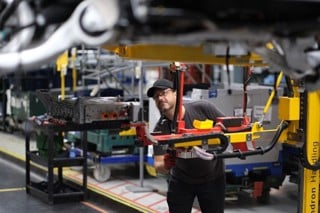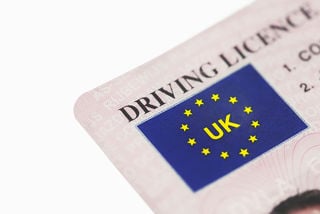Britain’s political parties have yet to provide answers to some of the key concerns facing fleet operators, says the British Vehicle Rental and Leasing Association (BVRLA).
Close examination of the manifestos published by the Conservatives, Labour, Liberal Democrats, UKIP and Green Party has found some positive policy proposals, but also highlighted the lack of attention paid to several major issues.
“Aside from some welcome commitments to roads spending and tackling emissions, there is a lack of bold, progressive policy measures that might galvanise Britain’s drivers and fleet operators,” said BVRLA Chief Executive, Gerry Keaney.
The BVRLA is particularly concerned about the lack of attention paid to road safety. None of the parties have made any pledges to introduce road safety targets, enhance the reporting of work-related accidents, increase enforcement or provide improved guidance to fleet operators and drivers.
“An estimated one-third of all accidents are work-related, yet politicians continue to demonstrate their apparent total disregard for the huge social and economic costs that ensue,” continued Keaney.
“No targets, no guidance and no reporting is a recipe for continued work-related carnage on our roads.”
Analysis of the manifestos showed a growing political consensus that more needed to be done to tackle air quality.
Most of the major parties agree that local authorities should be supported in setting up low-emission zones, but only the Liberal Democrats and Labour have explicitly backed the BVRLA’s call for a national framework to govern these.
The Conservatives and Liberal Democrats both say they would try to accelerate the uptake of ultra-low emission vehicles, with the Tories pledging £500m to ensure that nearly every car and van on the road would be a zero emission vehicle within 35 years. The Liberal Democrats are more ambitious - saying they will only allow ultra-low emission cars on UK roads by 2040.
The Liberal Democrats were the only party to respond to the BVRLA’s requests to come up with more effective motoring tax incentives promoting ultra-low emission vehicles.
They say they would reform Vehicle Excise Duty, and add a separate banding for new diesel cars.
None of the parties seem willing to address the issue of over-generous Authorised Mileage Allowance Payments (AMAPs), which provide millions of employees with no incentive to use safer, lower emission vehicles.
Road infrastructure did get a mention, with all the main parties committing to increased, longer-term funding for the national road network.
The Conservatives are the only party to put a figure on this investment - £15bn over the next parliament – while Labour is the only party to make any mention of addressing the poor investment in neglected local roads.
“Road transport makes a vital contribution to the economic and social wellbeing of this country. Whatever form the government takes after May 7th, the BVRLA will make sure that key issues affecting the sector are not forgotten,” said Keaney.
Last year the BVRLA came together with Fleet News and fleet decision-makers’ trade body ACFO to debate key issues and come up with the Fleet Industry Manifesto 2015, which has since been presented to representatives from all the major parties in the run-up to the General Election.





















Login to comment
Comments
No comments have been made yet.